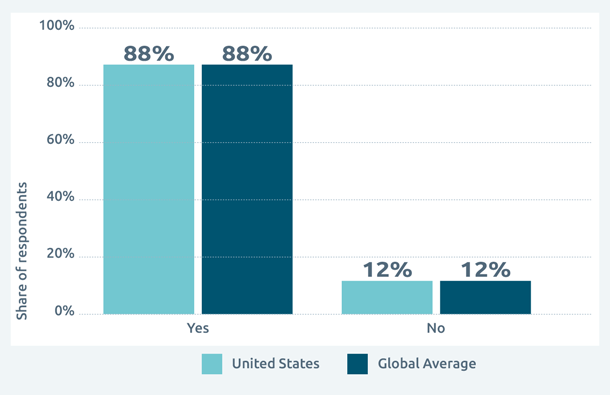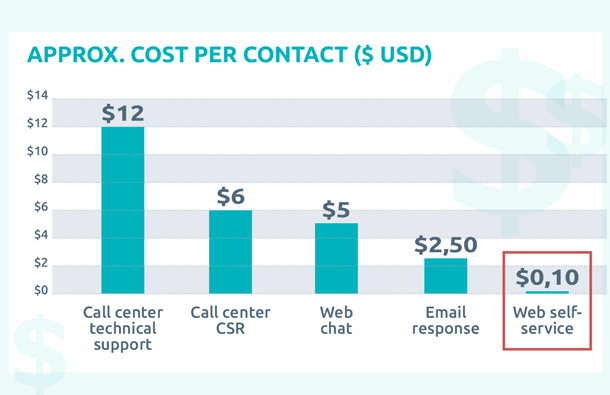Self Service – The Hassle Free Customer Care Solution
81% of all customers attempt to take care of issues themselves before reaching out to a live representative - across industries.
– Harvard Business Review –
90% of customers globally expect brands or organizations to have an online self-service customer support portal.
– Microsoft Report –

How leading brands are making massive use of self-service portal?
- Uber is utilizing a powerful feature that offers in-app help convenience. Their help center is integrated into their mobile app – this allows users to do just about anything via self-service – from requesting a refund to finding out about fees and more – everything is made available on your mobile device.
- Google and Microsoft have tons of products and services for consumers and businesses. Their self-service section is super rich with helpful resources. Anyone seeking information on the product or service can access their digital knowledge repository to find the desired answers. Google and Microsoft both offer various knowledge base articles on different topics.
- Spotify's support center is confident about how much content it can provide. Their well-organized knowledge articles with various topics make it easy to know where to go for account and subscription help. In addition, you can quickly access some of the most frequently asked questions and conveniently find where to learn about the different features of their service.

Knowledge – your digital library
The backbone of a robust self-service system is a thoughtfully curated Knowledge Base. A knowledge module is a digital library containing useful articles, videos, image files, and more that can instantly help customers and agents. The content here boosts efficient self-service by providing quick answers to customer queries.
Nowadays, customers tend to find answers on their own before reaching out for help. For them, Knowledge acts as a reference point to get the required details, accessible through a self-service interface. No matter what day of the week or time of the day, Knowledge is accessible 24/7.
Watch this video:
Please accept marketing-cookies to watch this video.
Share of customers who prefer online self-service
A survey by Statista shows that 88 percent of respondents from the United States expect brands or organizations to have a self-service support portal. Isn’t it alarming!

Digital helpdesk with a knowledge module
Self-service systems rely on specific software to perform properly. Digital helpdesk applications powered by artificial intelligence or machine learning can help a company's self-service facility become more intelligent.
A self-service tool is pre-configured with a series of actions for customers to find solutions for their requests independently, entirely automatically, and without third-party intervention. With the assistance of AI, these tools can identify response patterns, making the self-service system increasingly refined.
Also, from being able to resolve a range of queries, the customer is also guided step by step on procedures that can be done outside the system, and a human attendant can take over to chat when necessary.
Sign up for a free trial to get a hands-on experience of how self-service knowledge works.

The fun in finding any answer by yourself
Customer self-service refers to tools, technologies, and processes that allow customers to resolve their problems or find answers to their questions without human assistance. This solution includes a range of resources such as online knowledge bases, frequently asked questions (FAQs), tutorials, user manuals, and self-service portals.
By providing customers with self-service options, businesses can reduce the workload of their support teams, improve customer satisfaction, and save time and money.
However, it's important to note that while self-service options can be a valuable addition to a customer support strategy, they should not be seen as a replacement for human support. In many cases, customers may still require the assistance of a support agent to resolve more complex issues or provide personalized support.

Vitality to provide customer self-service; the benefits
Customer autonomy & convenience
Customer self-service provides customers with a convenient and easy way to access the information or services they need without waiting for a customer service representative to become available.
24/7 availability
Self-service options are available 24/7, which allows customers to access information or services at any time, even outside of regular business hours.
Increased customer satisfaction
Many customers prefer self-service options because they feel more in control of their experience. Providing a positive self-service experience can lead to increased customer satisfaction.
Increased efficiency
Customer expectations are rising, leading to a spike in incoming queries for support centers. Self-service is vital for businesses to successfully manage these queries in a streamlined manner. It does not just boost customer satisfaction but overall service efficiency.
Cost-effectiveness of self-service technology
Self-service options provide customers with faster solutions they can find on their own, and that's why it is becoming one of the preferred methods for customer service. For example, rather than picking up a phone and waiting on hold, customers can use your company's resources to look for answers to simple questions. Additionally, your customer service team benefits from not having to field repetitive or similar cases. This reduces the stress on incoming request queues and clears up more time for support representatives to solve complex or unique customer problems.
An in-depth study by Forrester Research and Oracle analyzed that web self-service can reduce costs by as much as $11 per call, and web self-service is 100x cheaper than phone support. As a result, businesses can save a significant amount of money by investing in self-service technologies.

91% of companies surveyed by Customer Contact Week identified self-service as a relevant investment focus for many brands.
According to Gartner research, organizations report up to 70% reductions in calls, chat, and/or email inquiries after implementing self-service facilities.



